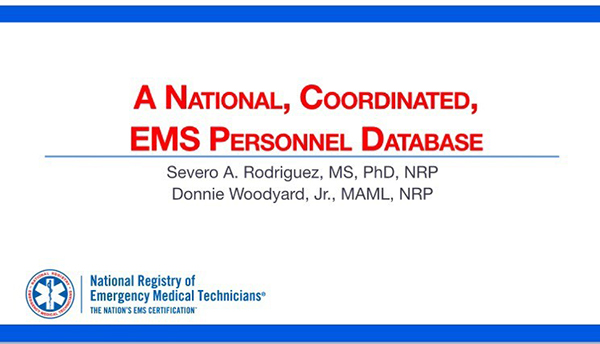Coordinated Database
Essential to REPLICA’s built-in accountabilities is a Coordinated Database. Member states will be able to rapidly share licensure history of personnel for the first time in our profession. Knowing exactly who is crossing state lines under REPLICA’s privilege to practice is vital to public protection and coworker safety.
The Compact enables the development, Section 11. COORDINATED DATABASE. This section states:
SECTION 11. Coordinated Database
A. The Commission shall provide for the development and maintenance of a coordinated database and reporting system containing licensure, adverse action, and significant investigatory information on all licensed individuals in member states.
B. Notwithstanding any other provision of state law to the contrary, a member state shall submit a uniform data set to the coordinated database on all individuals to whom this compact is applicable as required by the rules of the Commission, including:
- Identifying information;
- Licensure data;
- Significant investigatory information;
- Adverse actions against an individual’s license;
- An indicator that an individual’s privilege to practice is restricted, suspended or revoked;
- Non-confidential information related to alternative program participation;
- Any denial of application for licensure, and the reason(s) for such denial; and
- Other information that may facilitate the administration of this Compact, as determined by the rules of the Commission.
C. The coordinated database administrator shall promptly notify all member states of any adverse action taken against, or significant investigative information on, any individual in a member state.
D. Member states contributing information to the coordinated database may designate information that may not be shared with the public without the express permission of the contributing state.
E. Any information submitted to the coordinated database that is subsequently required to be expunged by the laws of the member state contributing the information shall be removed from the coordinated database.
The REPLICA database is being modeled after the databases used by other healthcare compacts. An example is the way states in the Nurse Licensure Compact (NLC) share information.. One key aspect will be the automated linkage to the National Practitioner Data Bank (NPDB), to which all healthcare licensing boards, including EMS, are federally required to submit information regarding adverse licensure actions or loss of license.
Member states will always own and control their data, which is another example of how states will maintain their sovereignty under REPLICA. The National Registry of EMT’s (NREMT) has committed to the creation and maintenance of this database.
To learn more about the NPDB go to:
The National Practitioner Data Bank (NPDB)


